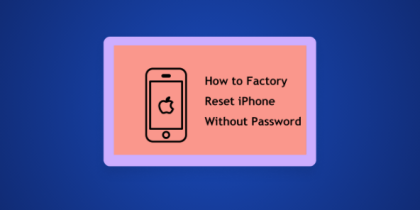If you’ve searched for free PC games online, you’ve likely come across Steamrip, a site offering cracked and repacked versions of paid titles. It looks clean, organized, and easy to use, which is why so many gamers wonder, Is Steamrip actually safe?
Steamrip itself doesn’t behave like a scam site, but it hosts cracked downloads, unverified game repacks, mirror hosts, and community-uploaded files, bringing unavoidable risks related to malware, privacy, and data exposure. Let’s discuss is Steamrip safe and why you must avoid such platforms.
What Is Steamrip?

Steamrip is a site that provides cracked versions of paid PC games, usually hosted through external file mirrors like Pixeldrain, Mega, Gofile, and others. These files come from repackers, not official developers, meaning everything you download has been modified in some way: DRM removed, files compressed, launchers changed, or scripts added.
And that’s where trust becomes a major issue. Unlike Steam, Epic, or GOG, nothing you download from Steamrip carries a verified signature, a security guarantee, or transparency about who edited the files. That lack of oversight is the foundation of the safety concern.
Is Steamrip Safe?
Steamrip isn’t necessarily out to harm you, but it does sit in the same risky territory as most free, unlicensed download platforms. Whenever people talk about sites that offer repacks, unofficial game files, or cracked installers, the concerns are almost always the same, and they apply here too.
Cracked installers, for example, are known to contain modified scripts that do a lot more than just “install a game.” Some download mirrors also load deceptive ads that look like real buttons, making it painfully easy to click something dangerous without realizing it. Then there’s the issue of unverified files, which have historically been used to hide trojans, clipboard hijackers, or even crypto-miners that silently run in the background.

Privacy also takes a hit. Every time you download files from an unlicensed source, your connection becomes visible to trackers, ad networks, and even your ISP, and most people seriously underestimate the amount of data exposed during these downloads.
So even if Steamrip itself isn’t intentionally malicious, the ecosystem around it is naturally unsafe. That’s why it’s important to understand the risks before you download anything. Let’s break them down properly.
The Real Risks of Using Steamrip
Malware isn’t always obvious, and that’s the problem. Cracked executables are one of the most common carriers of:
- keyloggers
- remote-access trojans
- crypto-miners
- hidden background tasks
One repacker update, one modified DLL, or one tampered mirror link can turn a harmless download into a long-term infection. When files bypass official verification, you simply can’t know what’s inside.

Many cracked game installers include custom scripts. These may change system settings, add entries to startup, or connect to external servers to fetch additional components. Even if the repacker claims the installer is clean, there’s no independent way to verify it.
When downloading from an unlicensed source, your IP address, device details, and browsing patterns are visible to:
- the mirror hosting the file
- trackers embedded in the page
- your ISP
- any ad networks used
- network snoopers on public WiFi
That’s why the privacy side of Steamrip is often riskier than the malware side. Steamrip relies heavily on third-party file hosts, and these sites aren’t regulated either. Some inject misleading “Download” buttons; others run aggressive tracking ads.
This exposes you to:
- deceptive redirects
- pop-ups disguised as installers
- scripts collecting metadata
- download pages that lead to unwanted software

Even if Steamrip itself isn’t harmful, its mirrors might be. Plus, Steamrip distributes copyrighted games without authorization, which puts users at risk of:
- ISP throttling
- monitoring flags
- copyright notices (varies by region)
Your ISP sees everything unless you take steps to secure your connection.
How to Minimize Risk While Using Steamrip
You can’t make cracked platforms fully safe, but you can reduce the damage. Instead of listing dozens of steps, here’s what to simply do:
- Only interact with the site on a device you can afford to isolate, never your main work or banking laptop.
- Always scan the files before launching anything. An antivirus scan often catches modified executables.
- Never disable your security tools just because an installer tells you to. Cracked files will always trigger false positives, but if you’re asked to turn off protection completely, that’s a major red flag.
- When downloading, avoid low-quality mirrors, shortened URLs, and anything that redirects you multiple times.
- Run installs in a sandbox or virtual machine.
- Keep your browser and OS updated to block exploit attempts.
- Never download cracks on public WiFi.
- Use PureVPN to encrypt your traffic.
Frequently Asked Questions
No. Steamrip distributes cracked games, which violates copyright laws in most regions.
No. Any cracked installer or modified executable can contain malware, even if the site itself looks clean. So it is better to be cautious.
While Steamrip doesn’t openly track users, its third-party mirrors and ad networks can collect IPs, browsing data, and device information.
Never. Public WiFi is highly vulnerable to interception, spoofing, and redirection attacks. Always use a VPN if you must access such platforms.
Firstly, you must never download a cracked game, but if you really need to, then use a VPN, scan every file, run installers in a sandbox or VM, avoid shady mirrors, and never download cracks on your main device.
Is Steamrip Worth It? Final Verdict
Steamrip may appear cleaner and more organized than other cracked-game platforms, but that doesn’t make it risk-free. Using it still exposes you to unverified installers that could contain malicious code, privacy risks from trackers or monitoring, and legal concerns since downloading cracked games is illegal in most regions.
On top of that, the mirrors hosting the files are often unsafe and can cause malware, data exposure, or legal trouble, which often outweigh the benefits.








